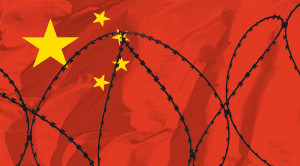 If the international community does not condemn China’s campaign against Muslim minorities in Xinjiang province, a precedent will be set and such atrocities will be adopted by other regimes, write Mehmet Tohti and Charles Burton in the Ottawa Citizen.
If the international community does not condemn China’s campaign against Muslim minorities in Xinjiang province, a precedent will be set and such atrocities will be adopted by other regimes, write Mehmet Tohti and Charles Burton in the Ottawa Citizen.
By Mehmet Tohti and Charles Burton, December 10, 2020
As the world somberly marked UN Genocide Commemoration Day this week, Canadians still await their own government’s action after a parliamentary panel found that China’s persecution of Uyghurs is now the largest mass detention of a people in concentration camps since the Holocaust.
Last summer, the House of Commons Subcommittee on International Human Rights held a series of emergency meetings on the plight of the Uyghur population in China, in response to growing reports of forced labour, forced sterilization and population control.
The subcommittee received briefs and testimony from 23 Canadian and international witnesses, who detailed atrocities in China’s flourishing campaign to eradicate Uyghur culture and identity by engaging two million people in forced labour and mental torture.
The subcommittee heard that in the prison camps, Uyghurs are required to speak only Mandarin Chinese and are denied their human right to practise their religion. Women and girls often face sexual abuse and rape by their captors. The situation for their children consigned to orphanages is one of complete assimilation into Han Chinese language and culture, combined with the desperation of having no information on the fate of their parents.
The subcommittee is urging the federal government to impose Sergei Magnitsky Act sanctions on all Chinese government officials culpable for perpetrating human rights abuses, and notes that if the international community does not condemn China’s campaign in Xinjiang province, a precedent will be set and such atrocities will be adopted by other regimes.
The subcommittee’s report aptly quotes Nobel Peace laureate Elie Wiesel: “Silence in the face of evil ends up being complicity with evil itself.” It is time Canada stopped standing idly by and showed some legitimacy for our purported commitment to the rules-based international order.
Mehmet Tohti is Executive Director at Uyghur Rights Advocacy Project. Charles Burton is a senior fellow at the Macdonald-Laurier Institute in Ottawa, and non-resident senior fellow of the European Values Center for Security Policy in Prague. He is a former professor of political science at Brock University, and served as a diplomat at Canada’s Embassy in Beijing.




